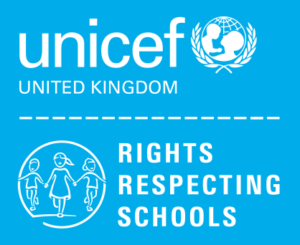The Rights Respecting Steering Group has been very busy over the past couple of years. We have worked hard to achieve our Bronze – Rights Committed award. We are raising awareness of the Unicef Convention for the Rights of the Child throughout the school and children are becoming more aware of their rights.
Check out all we are doing here at Seafield Primary School to support children’s rights.
RRS Links
Class Charter SWAY: https://sway.office.com/Ajj1TSnlEke7HmMA
Zones SWAY: https://sway.office.com/9rImDDEvxzJHW94E
Nurture SWAY: https://sway.office.com/2UBdi6kKZ9TxyP9q
The Award improves the lives of children in the UK by taking a whole school approach to putting children’s rights at the heart of school policy and practice.
Between 2017 and 2019 we gathered evidence that demonstrates the impact the Award makes to children and schools.
Our evidence is based on surveys with over 190,000 pupils and 20,000 staff, independent research and evaluations, school inspection reports and self-assessments with over 600 headteachers.
Over 1.6 million children in the UK go to a Rights Respecting School and around 5,000 schools in England, Northern Ireland, Scotland and Wales are working through the Award.
We have found that as a result of participation in the Rights Respecting Schools Award children at schools who have progressed through the Award:
- Know about rights
- Can exercise their rights
- Feel valued
- Can recognised the rights of others
Knowledge of rights is central to these impacts since they not only set standards that children can expect, but also empower children to challenge when these standards are not met.
The RRSA Impact Evidence Pack presents the evidence that supports our Theory of Change and demonstrates impact for children and whole school communities in the following areas:
- Children learn about rights
- Children can exercise their rights
- A culture of respect across the school
- Pupil engagement – a shared sense of community and belonging
- A culture where children’s voices are heard and valued
- Children take their right to an education seriously
- Global citizenship – children believe they can change the world for the better
- Children develop self-esteem and value themselves
- A school environment where children feel safe and cared for
- Adults also benefit from a rights respecting culture
Knowledge and understanding of rights is central to change in these areas since rights not only set standards that children can expect, but also empower children to challenge when these standards are not met.
In 2020 the Equality and Human Rights Commission presented examples of good practice in human rights education by working with 10 Rights Respecting Schools across the UK. Their report explores what schools need to have in place to achieve outcomes in many areas of school life and how an approach based on rights can impact on attainment, attendance, and a reduction in racist and other prejudiced attitudes. Read this here.
You can also view our 2018 Impact Report, our 2017 Impact Report and our 2016 Impact Report.

